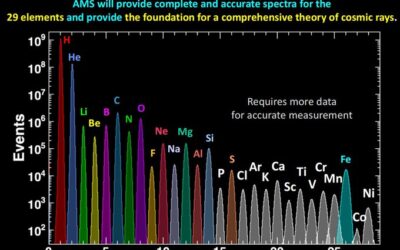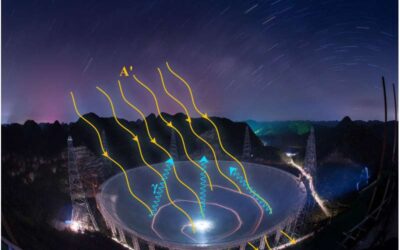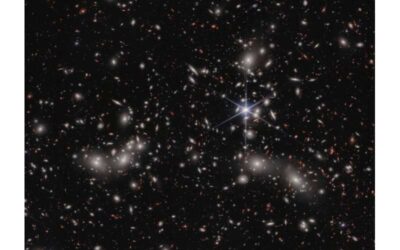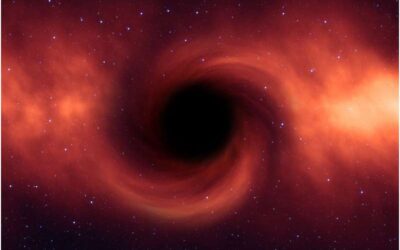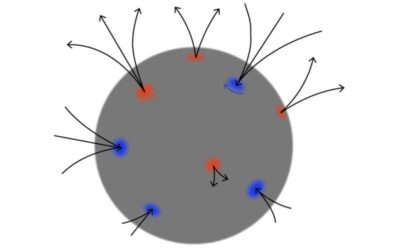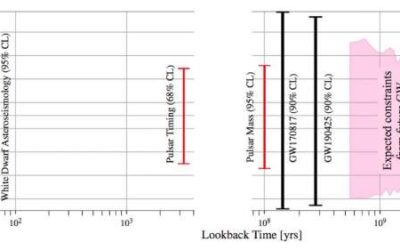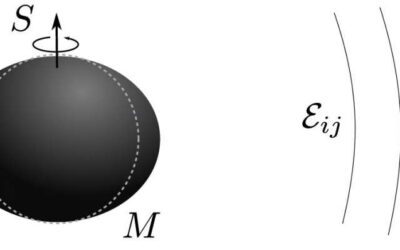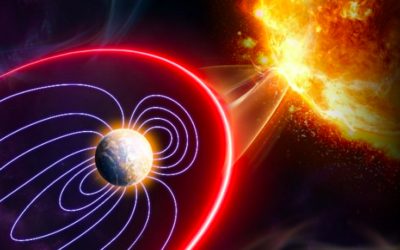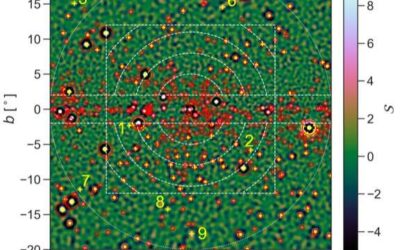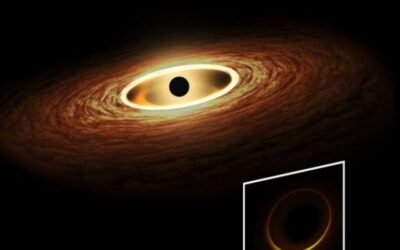Charged cosmic rays, high-energy clusters of particles moving through space, were first described in 1912 by physicist Victor Hess. Since their discovery, they have been the topic of numerous astrophysics studies aimed at better understanding their origin,...
Astronomy & Space
Could dark photon dark matter be directly detected using radio telescopes?
Dark matter, matter in the universe that does not emit, absorb or reflect light, cannot be directly detected using conventional telescopes or other imaging technologies. Astrophysicists have thus been trying to identify alternative methods to detect dark matter for...
Could quantum fluctuations in the early universe enhance the creation of massive galaxy clusters?
Astrophysicists have been trying to understand the formation of cosmological objects and phenomena in the universe for decades. Past theoretical studies suggest that quantum fluctuations in the early universe, known as primordial quantum diffusion, could have given...
Study rules out initially clustered primordial black holes as dark matter candidates
Primordial black holes (PBHs) are fascinating cosmic bodies that have been widely investigated by astrophysicists worldwide. As suggested by their name, these are black holes believed to have appeared in the universe's early days, less than a second after the Big Bang.
Theoretical physicists argue that black holes admit vortex structures
Black holes are astronomical objects with extremely strong gravitational pulls from which not even light can escape. While the idea of bodies that would trap light has been around since the 18th century, the first direct observation of black holes took place in 2015.
Study places new constraints on the time variation of gravitational constant G
Past physics theories introduced several fundamental constants, including Newton's constant G, which quantifies the strength of the gravitational interaction between two massive objects. Combined, these fundamental constants allow physicists to describe the universe...
Spinning black holes could deform under an external and static gravitational field
An open question among the physics community is whether black holes can be tidally deformed by an external gravitational field. If this were confirmed to be true, it could have important implications for many areas of physics, including fundamental physics,...
The effects of solar flares on Earth’s magnetosphere
Planet Earth is surrounded by a system of magnetic fields known as the magnetosphere. This vast, comet-shaped system deflects charged particles coming from the sun, shielding our planet from harmful particle radiation and preventing solar wind (i.e., a stream of...
Could recently spotted dim point sources explain the galactic center excess (GCE)?
Over the past decade or so, a number of astrophysics studies have detected an excess of gamma-ray radiation at the center of our galaxy. Despite the many attempts to understand this unexpected surplus of radiation, now known as the galactic center excess (GCE), its...
A new theorem predicts that stationary black holes must have at least one light ring
Black holes, regions in space with such an intense gravitational field that no matter or radiation can escape from them, are among the most mysterious and fascinating cosmological phenomena. Over the past five years or so, astrophysicists collected the first...

